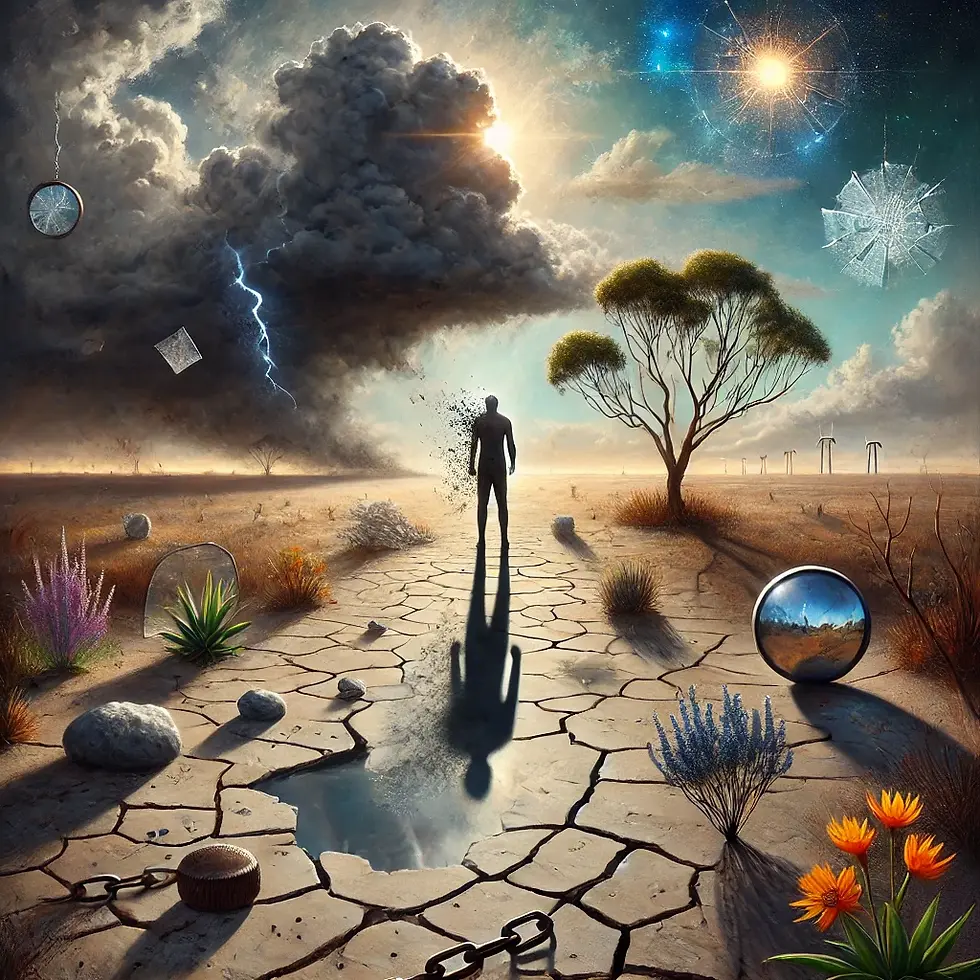21. Healing & Forgiveness - Part I
- John Swoboda

- Jan 5
- 3 min read
Updated: Jan 5
For most of my life, being a seemingly functional, respected and a much relied upon member of my family gave me value. It also meant that I could never let them catch, even a glimpse of a slither, of what lay beneath.
This was my foundation of every waking day - a new round of SURVIVAL vs AUTHENTICITY!
And it's fucking exhausting.
I rang a cousin this afternoon, we don't often speak, but when we do, it's simply us. Through the course of our catch up we reached that point where we asked one another "how have you been?" We went off script!! There was no 'yeah, nah, good thanks!'
With genuine laughter, sometimes through tears (favourite emotion) & many giggles, our progression to Facetime - at which point we provided reassurances of how we are hands down the prettiest in our families (and always have been). We shared our stories, the trauma's we are battling & listened to one another's experiences to understand how they impact the other. It was our vulnerability that ensured AUTHENTICITY WINS - and ensures fucking connection.


"It was never my burden to bear."
Seven simple words—but they forever changed how I saw myself, my past, and my trauma.
For years, I couldn’t name it. I couldn’t admit that I had been sexually abused during my time at TSS. And even after acknowledging the truth, I struggled to understand the far-reaching impact. I never thought of myself as someone living with PTSD—after all, wasn’t PTSD something reserved for veterans who’d seen the atrocities of war?
But I was living it. Every single day. I coped by dissociating, retreating into a mental space where I could feel nothing. My body showed up, went through the motions, but my mind was a thousand miles away. And on the darkest days, I found comfort in the thought that ending my life might solve everything. That thought gave me control when I felt I had none.
Growing up, the messaging around safety and responsibility felt performative at best. We were told to be wary of “stranger danger,” and campaigns against bullying were loud and public, insisting we all had a duty to speak up. Yet behind the scenes, the very structures meant to protect us were failing in ways no one dared to discuss.
Sex education was no exception. The lessons were awkward, superficial, and woefully inadequate for a group of teenage boys navigating puberty and the complexities of adolescence. We sat through dry lectures that presented blurry overhead images of anatomy and overly clinical descriptions of reproduction. Anything beyond the most basic facts seemed off-limits—likely because discussing it openly made everyone, teachers included, deeply uncomfortable.
Looking back now, I can only hope the girls at St. Hilda’s received better instruction—something more meaningful than the implied notion that prayer alone could serve as contraception. For us boys at TSS, the gaps in our education were filled not by adults but by the circulation of pornographic magazines and videos among students. Those became our lessons about intimacy and relationships.
These experiences shaped us in ways we didn’t understand at the time. And for me, they created a perfect storm of confusion, shame, and disconnection that stayed with me for years.
But those seven words—“It was never my burden to bear”—helped me see the truth. The abuse I suffered, the shame I carried, the inadequate systems and silences—they were never mine to own.
Healing is a personal business, and forgiveness is very much a choice. But the first step is understanding that the weight of what happened doesn’t belong to the survivor—it belongs to those who caused it and those who failed to prevent it.
Listening to shame



Comments